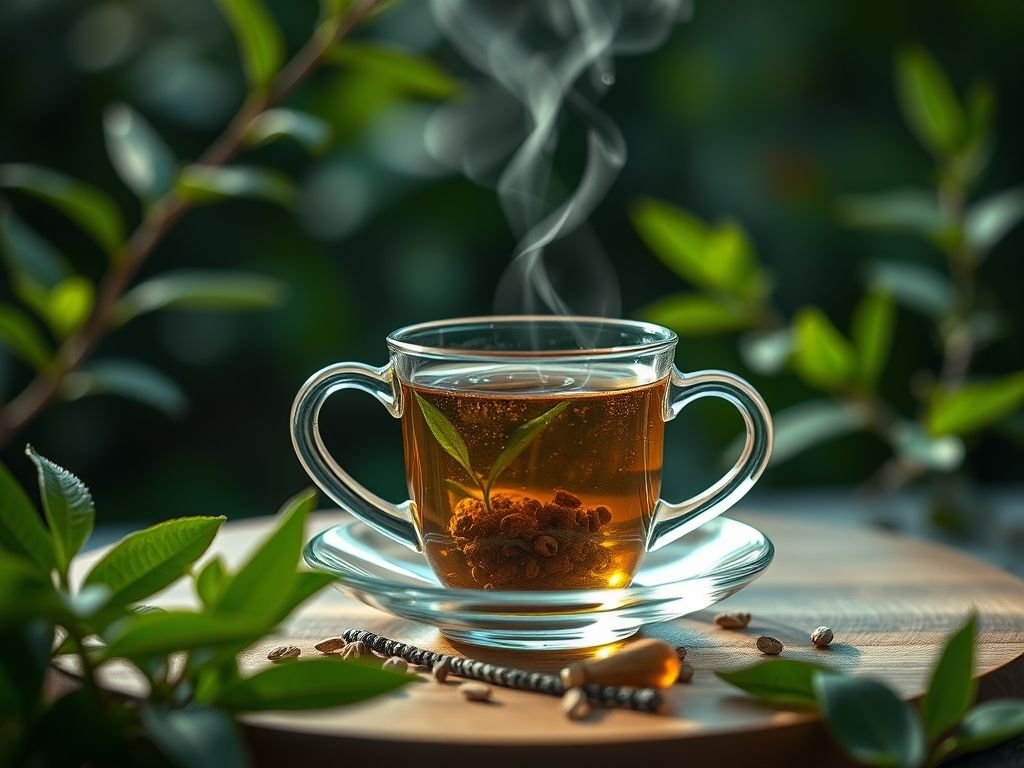Understanding Tea for Respiratory Health
- Understanding Tea for Respiratory Health
- The Importance of Respiratory Health
- Key Herbal Teas for Respiratory Support
- How to Prepare Tea for Respiratory Health
- Practical Applications of Tea for Respiratory Health
- Related Concepts in Natural Health
- Conclusion: The Practical Benefits of Tea for Respiratory Health
Tea for respiratory health refers to various herbal teas that are traditionally believed to support lung function and overall respiratory wellness. This includes teas made from specific plants known for their medicinal properties, such as eucalyptus, peppermint, and ginger. As more adults turn to natural remedies for health concerns, understanding the benefits of these teas becomes essential.
The Importance of Respiratory Health
Respiratory health is crucial for our overall well-being. It affects how we breathe, our energy levels, and even our mood. Poor respiratory health can lead to various issues, including chronic obstructive pulmonary disease (COPD), asthma, and reduced immunity. Incorporating herbal teas into your daily routine may provide natural support to your respiratory system.
Key Herbal Teas for Respiratory Support
- Peppermint Tea: Known for its menthol content, peppermint tea can help soothe the throat and open airways, making it easier to breathe.
- Eucalyptus Tea: Often used in steam inhalation, eucalyptus can help clear mucus, making it a popular choice for respiratory health.
- Ginger Tea: With anti-inflammatory properties, ginger tea can help reduce inflammation in the respiratory tract, providing relief from congestion.
- Thyme Tea: This herb has antimicrobial properties and can help fight respiratory infections.
How to Prepare Tea for Respiratory Health
Making herbal tea is simple and can easily be incorporated into your daily routine. Here’s a basic guide on how to prepare tea for respiratory health:
- Choose Your Herb: Select one of the herbs mentioned above based on your preference and needs.
- Boil Water: Bring water to a boil. The amount can vary depending on how strong you want your tea.
- Add Herbs: If using fresh herbs, use about one tablespoon per cup of water. For dried herbs, one teaspoon per cup is sufficient.
- Steep: Let the tea steep for about 5-10 minutes. Adjust the steeping time depending on how strong you like your tea.
- Strain and Enjoy: Strain the tea into a cup, add honey or lemon if desired, and enjoy!
Practical Applications of Tea for Respiratory Health
Here are some ways to incorporate tea into your daily life for respiratory benefits:
- Morning Ritual: Start your day with a cup of ginger or peppermint tea to help clear your airways.
- Before Bed: A calming cup of eucalyptus tea in the evening can help relax your respiratory system and promote better sleep.
- During Cold Season: Drinking thyme tea can support your immune system and help ward off respiratory infections.
- Post-Workout: Hydrate with peppermint tea after exercising to refresh your lungs and aid in recovery.
Understanding tea for respiratory health connects to several other concepts in the realm of natural health and herbal medicine:
- Herbal Remedies: The use of plants for medicinal purposes dates back centuries and is deeply rooted in many cultures.
- Aromatherapy: Similar to drinking herbal teas, inhaling essential oils can also support respiratory health.
- Nutritional Support: A diet rich in vitamins and minerals can enhance immune function, complementing the benefits of herbal teas.
- Mindfulness Practices: Techniques such as deep breathing and meditation can improve overall respiratory well-being.
Conclusion: The Practical Benefits of Tea for Respiratory Health
Incorporating herbal teas into your daily routine can be a simple yet effective way to support your respiratory health. By understanding which teas are beneficial and how to prepare them, you can take proactive steps toward enhancing your overall wellness. Whether you’re seeking relief from seasonal allergies, looking to boost your immune system, or simply wanting to breathe easier, herbal teas offer a natural solution.
Take a moment to consider how you might incorporate tea for respiratory health into your daily life. Will you start your morning with a refreshing cup of peppermint tea or unwind with soothing eucalyptus before bed? The choice is yours, and the health benefits await!

